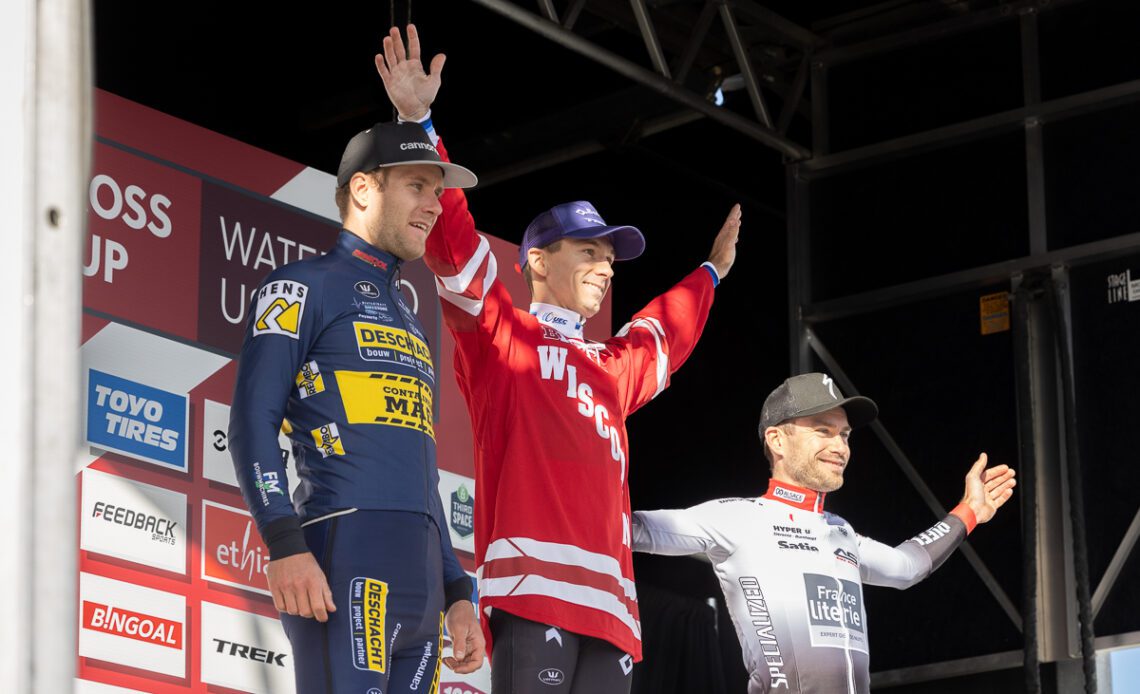After the success of the UCI Cyclocross World Championships in Hoogerheide, UCI Director of Sports Peter van den Abeele hinted that future rounds of the UCI World Cup series could be held as far and wide as New York, Munich and even Johannesburg, South Africa.
However, those ambitions seem difficult to achieve.
The UCI and World Cup series organiser Flanders Classics are trying to globalise and grow cyclocross by convincing major cities to host races in competition with the traditional Dutch and Belgian race organisers. Dublin and Benidorm hosted World Cups this winter and London could soon host a round.
The expansion is hurting traditional European races and cyclocross teams and national federations are struggling to cover the extra costs of racing across Europe and especially across the Atlantic Ocean.
Only Waterloo, Wisconsin is expected to host a World Cup race in the USA in 2023-2024, thanks to Trek’s desire to put on a major race at their headquarters.
Brook Watts was instrumental in the growth of cyclocross in the USA in the last decade, organising CrossVegas, the first World Cup in the country. He is in favour of a more global cyclocross calendar but struggles to see how a race in New York can be viable.
“I don’t believe it’s possible from an economic standpoint to see a cyclocross World Cup on Manhattan island, let alone in Central Park,” Brook Watts told Cyclingnews while in Belgium during a personal trip to Europe for the World Championships.
“New York doesn’t need a cyclocross race when so much else is going on in the city. Maybe they’re talking to someone from the New Jersey, or the Connecticut side of New York, but that’s not the same as racing in NYC and it’s almost as expensive.”
CrossVegas was a success for several years because it was held at the same time as the annual Interbike trade show in September.
Until 2022, a second World Cup event was also held in Iowa, making for a logical, easy trip to the Midwest for European teams. A race in New York would not work the same way.
“We had the ideal scenario with the two Waterloo-Iowa World Cup races,” Watts explained.
“The team could fly into Chicago easily, race in Waterloo, then drive down to Iowa, race there and then fly back to Europe from Chicago. It was a perfect travel triangle, without travelling across the USA. Going to New York would be a lot more complicated and costly.”
He is concerned that the European teams and riders may opt not to travel to the USA for just a single World Cup.
“Trek…
Click Here to Read the Full Original Article at CyclingNews RSS Feed…

